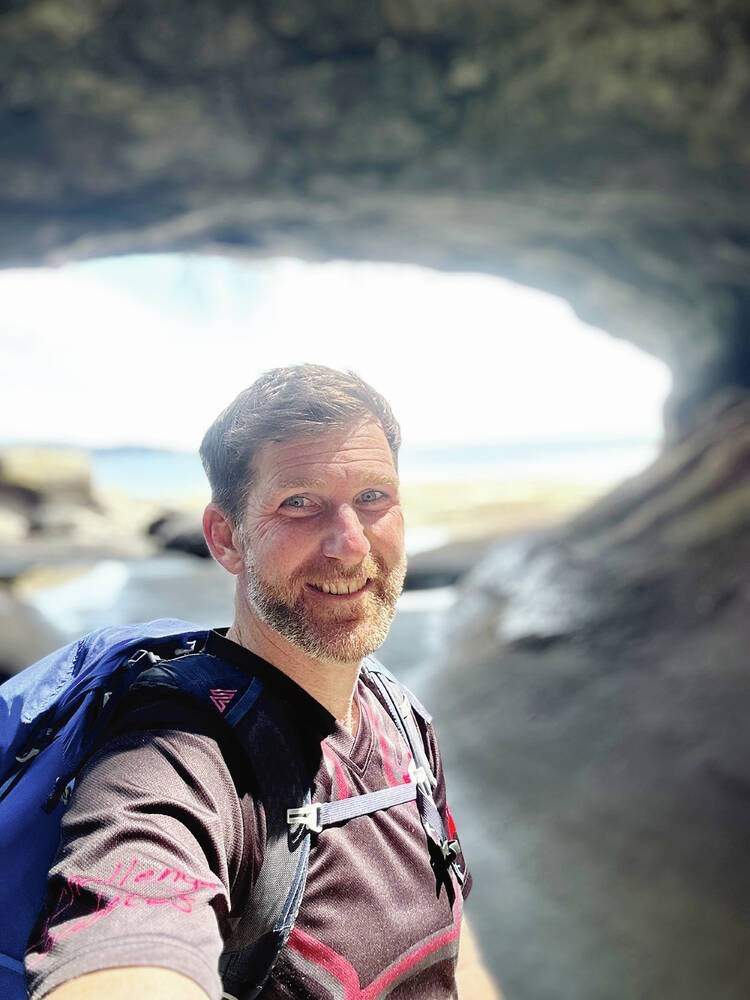Chris Jarvis was one of the first of the season to tackle the gruelling West Coast Trail this week.
But while others slowly pushed their way up steep ladders and over sticky mud and foot-sucking sand beaches on the 75-kilometre trail, Jarvis — a type 1 diabetic — ran the rugged terrain in just under 32 hours.
Even with a nine-hour overnight camp to rest, it was still under the 36-hour limit Jarvis had set for himself.
“I’m feeling a bit woozy, but OK … there are times when you want to go faster but [being a diabetic] you have to have the balance,” said Jarvis, 43, who spent nine years on the Canadian Olympic rowing team and won a gold medal at the Pan Am Games in 2007.
“And I have to remember that I’m the father of two young children, so I have to be cautious about my own well being.”
Executive director of I Challenge Diabetes, a charity he founded, Jarvis had led 10 previous hikes with diabetics on the West Coast Trail over the years to show that it’s possible to manage sugar levels amid rigorous exercise.
Jarvis, who also hosts day and week-long outdoor camps, had started the charity to provide support to diabetic youth and their families through adventure programs, where they learn skills and gain confidence to overcome the daily challenges of living with diabetes.
But his trek this season was more personal, with Jarvis pushing his limits to mark the 30th year since his diagnosis and to raise funds and the profile of the charity.
His run on the West Coast Trail has so far raised $14,000 toward a $25,000 goal.
“I wanted to show you can push yourself and be healthy [with careful management],” said Jarvis.
Back in 2006, when he led a group of people with type 1 diabetes on a five-day hike to Machu Picchu in Peru, each adventurer would poke a finger at least 10 times a day and Jarvis would check on the group twice a night to manage low blood sugars.
Some days of intense exercise would make insulin 10 times more powerful, which, if not addressed, could be life-threatening.
This week on the West Coast Trail, however, Jarvis was wearing a small patch the size of a quarter called a G7 that sends glucose readings to his watch, alerts him to trends and allows him to adjust insulin in response to real-time glucose trends with an insulin pump that can handle the most sensitive adjustments.
Jarvis said at many points during the trek, he had to stop or at least slow down as he watched his glucose levels drop.
There were other challenges involving the trail itself.
“Some of the ladders are four or five storeys tall, and some of them are rotting, so you really had to be careful,” said Jarvis.
At one point, he ended up head first in the mud on a slippery section, a sign for him to take more measured steps.
Jarvis packed plenty of dried fruit, full of sugars, “Honey Stingers,” an energy gel, and chick-pea chips to replenish fats and proteins.
He said he hopes his journey will give confidence to the newly diagnosed.
He also hopes to continue to raise funds to enable more people living with diabetes to experience a workshop, sports camp or adventure program with the support of a community.
For more information and to donate, go to




